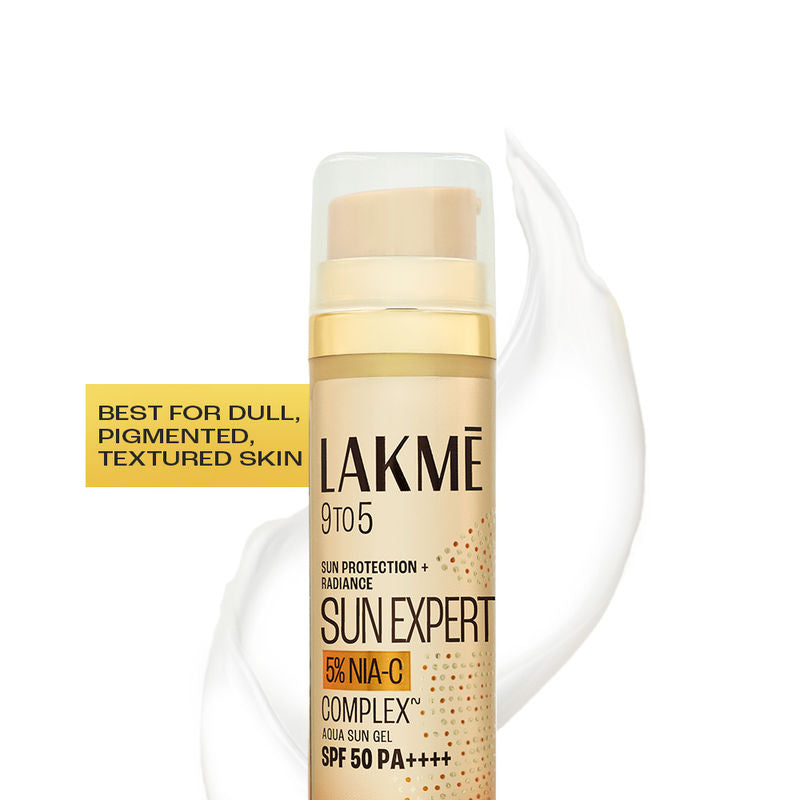
Highlights
WHAT IS IT?
Sunscreen gel with 5% Niacinamide and Vitamin C
FEATURES
Water-light formula, SPF 50 PA++++ UV protection, gel texture, non-greasy, no white cast, contains Niacinamide and Vitamin C for radiance
BEST FOR
oily
CHECKS
Does not leave white cast, lightweight formula, non-greasy
Who Is It For?
All Genders General Usage No Specific Age Range MentionedWhat Does It Help With?
Sun Protection Skin Brightening Oil ControlBudget
Affordable (under $30)How To Use
Which routine should it be used in?
Instructions:
Key Information










What Nykaa E retail limited Says
Product Description:
Lightweight gel sunscreen with 5% Niacinamide and Vitamin C, offering SPF 50 PA++++ protection. Suitable for oily skin, it blends seamlessly without leaving a white cast and provides effective sun protection while making skin radiant and glowing.
About the Brand:
Ingredients Overview
Ingredients List
Water,Glycerine,Octocrylene,Ethylhexyl-Salicylate,Alcohol-Ethanol-95%-V/V,Phenylbenzimidazole-Sulfonic-Acid,Butyl-Methoxydibenzoylmethane,Cyclopentasiloxane,Dimethicone/Vinyl-Dimethicone-Crosspolymer,Silica,Ethylhexyl-Methoxycinnamate,C18-36-Acid-Triglyceride,Ammonium-Acryloyldimethyltaurate/Vp-Copolymer,Niacinamide,Caprylyl-Glycol,Fragrance,Phenoxyethanol,Sodium-Hydroxide,Xanthan-Gum,Sodium-Ascorbyl-Phosphate,Ammonium-Acryloyldimethyltaurate/Beheneth-25-Methacrylate-Crosspolymer,T-Butyl-Alcohol,Tocopheryl-Acetate,Disodium-Edta,Alpha-Isomethyl-Ionone,Benzyl-Salicylate,Citronellol,Geraniol,Hexyl-Cinnamal,Limonene,Linalool,Ethyl-Alcohol-95%-V/V-Alcohol
Key Ingredients
Niacinamide, Sodium Ascorbyl Phosphate (Vitamin C), Tocopheryl Acetate
Ingredients Details
Citronellol
Cyclopentasiloxane
Fragrance
Geraniol



